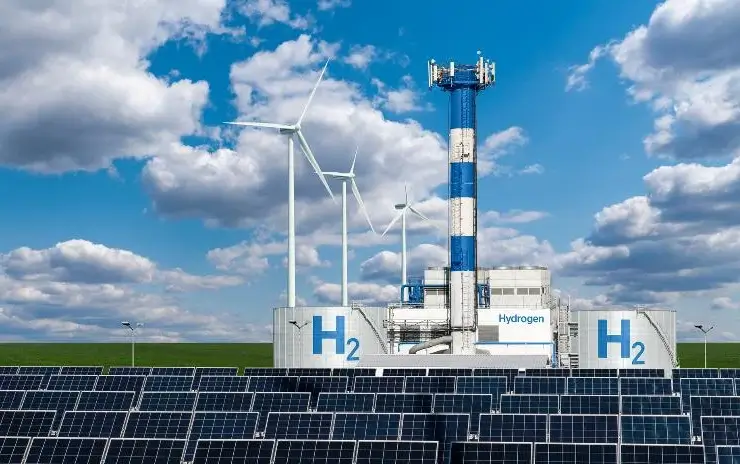The role of hydrogen in the decarbonization of heavy industry will grow. In recent months, there has been a sharp increase in the number of global companies that have announced pilot schemes aimed at demonstrating the potential of this gas to transform energy-intensive industrial processes and move away from coal and other fossil fuels.
Earlier this month, Vattenfall, the Swedish energy group, announced plans to participate in the construction of the world's first hydrogen generating plant at the Hollandse Kust West offshore wind farm project in the Netherlands. The goal is to transport "green" hydrogen to Rotterdam, which will be used in a number of petrochemical and other industrial processes.
The company is already pioneering the use of green hydrogen in green steel production for the Volvo Group, a car manufacturer.
As a consortium that also includes Swedish metals producer SSAB and iron ore company LKAB, it has used hydropower from the country's reservoir system to produce hydrogen through electrolysis. This can then be used as a chemical reducing agent to remove oxygen from iron ore to produce high quality steel.
Other steelmakers are looking to reduce the use of highly polluted coking coals as an ingredient in smelting ore and switch to cleaner energy where available.
ArcelorMittal, Europe's largest steelmaker, announced a US$5.6 billion investment in Spain, Canada, Belgium and France over the past year in projects aimed at decarbonizing steel production.
However, the use of hydrogen to decarbonize heavy industries such as steel remains problematic.
Many of these pilot projects depend on a partial, rather than complete, transition from natural gas to hydrogen or the "green" or "grey" variety that is produced from fossil fuels. ArcelorMittal says its ambition is to make future investments “hydrogen-ready” so that, as and when hydrogen supplies become available, they can switch from natural gas to achieve decarbonization goals.
Michael Nordländer, director of industrial decarbonization at Vattenfall, says there are many opportunities to expand the use of hydrogen to other areas of heavy industry and transport. Consortiums that include Vattenfall have announced plans to use the energy generated by wind farms off Sweden's southwest coast to produce clean, fossil-fuel-free, hydrogen-based jet fuel by 2030. The company is also looking into ways to use clean hydrogen to recycle biogenic carbon dioxide waste produced by the paper and pulp sector in Scandinavia.
Hydrogen plays an important role in a number of manufacturing sectors “where high temperatures are needed and it is difficult to apply electricity directly,” says Nordlander. But one technological limitation is a gap in the supply of equipment used to split water into hydrogen and oxygen to create an ecological fuel supply. “There is not enough capacity to produce electrolyzers,” he explains.
Another concern is uncertainty about the future cost and volume of hydrogen supplies. Investors in installed settings need to be reasonably confident that they can be economically operated at full capacity. Earlier this year, ThyssenKrupp Nucera, which is majority owned by German engineering group ThyssenKrupp, pointed to a €900 million order backlog for green hydrogen electrolysis equipment and said it was planning an IPO to help boost shipments. It says: “Not only is the hydrogen market expected to grow seven-fold by 2050, but the majority of production previously based on fossil fuels will be converted to green hydrogen.” However, fundraising has been suspended for today.
Brad Davey, EVP of ArcelorMittal, says the availability and cost of green hydrogen is a challenge at this stage of the transition. At the same time, he believes that political support is needed to "ensure that the regions that move first do not become uncompetitive given the global steel trade."
The UK Climate Change Committee, an independent group advising the government, says there is a need to significantly increase the use of hydrogen, as well as direct electrification from green energy sources, to help the country meet its environmental obligations.
Aaron Goather, an analyst at the CCC (Climate Change Committee), says most estimates indicate that heavy industry is




